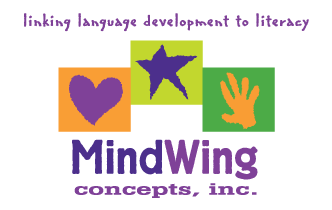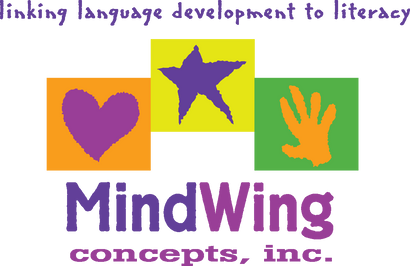Menu
-
- Home
-
About Us
-
The Approach
-
Linking Language & Literacy
-
MindWing Learning
-
Learning Resources
-
SHOP
-
Blog
-
- About MindWing
- Our People
- Contact Us
- Your Account
- Login
-
Spain (EUR €)

Mitigating Myside Bias in Argumentation
January 22, 2019 3 min read
 Last week, I finished a blog for our website about using the Story Grammar Marker® and/or Braidy the StoryBraid® with Aesop’s Fables. The blog was the result of a discussion with colleagues centering on problems teaching a fable as a read-aloud with few illustrations as guides. My comments focused on the need to develop perspective taking in our students so that they will be able to see both sides (perspectives). Please see my previous blog here.
Last week, I finished a blog for our website about using the Story Grammar Marker® and/or Braidy the StoryBraid® with Aesop’s Fables. The blog was the result of a discussion with colleagues centering on problems teaching a fable as a read-aloud with few illustrations as guides. My comments focused on the need to develop perspective taking in our students so that they will be able to see both sides (perspectives). Please see my previous blog here.
 A fable is a story that teaches a lesson. In order to learn the complete lesson and ultimately apply it to life, one must look beyond the perspective on one character or the other. The lesson learned from the “Grasshopper and the Ants” is that there is a need to prepare for the future. This is so true and we realize it as our own lives progress. The ants worked tirelessly and diligently to prepare. And they did! The grasshopper did not prepare and was left to fend for himself. The lesson learned is a good one for life. But, perhaps teaching the grasshopper or involving him in some of the work, simple at first, would assist him in learning the lesson, too, without the consequences he faced in the fable! The ants did not do that in this Aesop’s fable.
A fable is a story that teaches a lesson. In order to learn the complete lesson and ultimately apply it to life, one must look beyond the perspective on one character or the other. The lesson learned from the “Grasshopper and the Ants” is that there is a need to prepare for the future. This is so true and we realize it as our own lives progress. The ants worked tirelessly and diligently to prepare. And they did! The grasshopper did not prepare and was left to fend for himself. The lesson learned is a good one for life. But, perhaps teaching the grasshopper or involving him in some of the work, simple at first, would assist him in learning the lesson, too, without the consequences he faced in the fable! The ants did not do that in this Aesop’s fable.
However, in a children’s book written by Jerry Pinkney, the grasshopper experiences the compassion of the ants, as a decision is made to assist him. In turn, he uses his musical talents to entertain them in their nest during the dark days of winter. This book and the concept of telling a story from more than one perspective will be the focus of a webinar that I will do in February. Participants will be provided with a lesson plan using the Story Grammar Marker® icons, narrative development, perspective taking, and the decision-making process as a negotiation skill to solve problems in the social realm! A pretty complex description!
What led me to write this piece today? I received my latest issue of the Journal of Adolescent and Adult Literacy (International Literacy Association). Connections to my Aesop’s Fables blog were made with an article listed below:
Branum, Lezlie & Strong, Ashley & D'On Jones, Cindy. (2018).
Mitigating Myside Bias in Argumentation.
Journal of Adolescent & Adult Literacy. 62. 10.1002/jaal.915.
(Request full text here)
The article on Myside Bias was interesting since the term comes from the 1960s researcher Peter Wason who coined the term. The authors’ view concerns observation that some people have an “inability to critique pre-existing attitudes or consider possible value in alternate ideas.” This inability “hinders constructive discourses and fosters polarization.” The focus was on assisting students to recognize “multiple perspectives and the contexts that shape those perspectives” as a way to foster discussion, problem-solving and negotiation in adolescent classrooms.
In our work, now 28 years long, using the Story Grammar Marker® for narrative development, we have always advocated the use of quality children’s literature. In doing so, we have fostered the teaching and talking about perspectives of multiple characters within increasingly complex stories. In doing so, we have provided a way to work on the problem of “seeing and talking about” perspectives of characters and how they differ within the story AND with our own point of view! We have made it possible through our manipulatives to model characters’ perspectives and how they influence the plot and each person within the story. In this way, the author’s perspective or purpose is revealed and discussed. Children begin this process in pre-kindergarten and refine it over time as they read and comprehend and ultimately express their own perspectives with full recognition of others’.
Our goal as practitioners at MindWing Concepts is to help students verbalize their perspective taking skills as they join in a community of thinkers and problem-solvers through the narrative mode of thought.
I hope you will tune in to my upcoming February webinar.
Leave a comment.
Comments will be approved before showing up.
